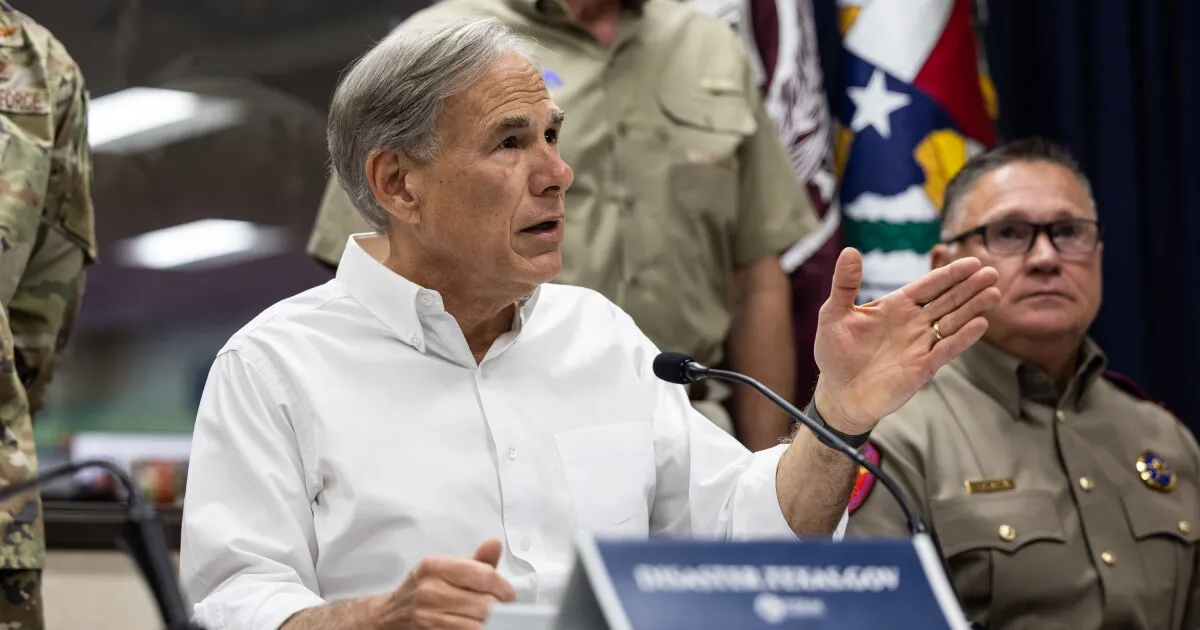
In the wake of devastating floods, Texas Governor Greg Abbott has announced a renewed commitment to enhancing the state's preparedness for natural disasters. During a press conference held in the flood-stricken Kerr County, Abbott emphasized the need for comprehensive measures to prevent future catastrophic flooding events. “We’re going to address every aspect of this storm to ensure that we have the necessary systems in place,” Abbott stated on Tuesday.
On Wednesday, the governor officially released his proclamation for a special legislative session scheduled for July 21, which includes four specific proposals aimed at improving flood readiness. Abbott is urging lawmakers to explore legislation that will enhance early warning systems and bolster preparedness infrastructure in flood-prone areas across Texas.
“Our goal is to conclude this session with improved resilience for our communities and the necessary resources to support them,” Abbott reiterated. This focus comes after lawmakers failed to pass a bill during the regular session this spring, which would have allocated additional funding for communication and warning systems during natural disasters. However, the current sentiment among Texas lawmakers indicates a willingness to heed Abbott's call for action.
House Speaker Dustin Burrows, a Republican from Lubbock, assured the public, “The Texas House will be organized. We will be ready.” He expressed a commitment to listening to both the community and experts to ensure effective responses to natural disasters. The legislative agenda includes proposals for strengthening emergency communications, providing relief funding for storm response and recovery, and simplifying rules to expedite disaster preparedness and recovery efforts.
With flooding at the forefront of public concern, Lt. Gov. Dan Patrick has proposed an innovative idea to enhance safety measures. In a recent interview on Fox News, Patrick suggested the installation of sirens similar to those used in Israel, which could alert residents in flood-prone areas. “Had we had sirens along this area, that would have blown very loudly, potentially saving lives,” he stated, expressing hopes for these installations to be completed by next summer.
Texas is not alone in its quest to improve disaster response systems. Following a tragic flood in Tennessee, state lawmakers established a $5 million loan fund for hazard mitigation projects. Experts like Upmanu Lall, Director of the Columbia Water Center at Columbia University, caution that sirens alone may not be a panacea. “Even if a siren goes off, we cannot be sure that residents would evacuate,” Lall explained, noting that frequent flood warnings in places like Iowa often go unnoticed.
Lall advocates for Texas lawmakers to consider more extensive flood preparedness solutions employed in countries like China, which utilizes advanced sensor technologies to monitor rainfall and water levels. “These systems provide a real-time view of conditions, enabling timely activation of rescue measures and information dissemination,” he added.
Some Texas lawmakers, including Republican Rep. Drew Darby, have acknowledged that past proposals aimed at improving flood response systems were often sidelined. “It sometimes takes a disaster to unify our focus on a common goal,” Darby remarked, stressing the importance of legislative will in addressing these urgent issues.
Beyond flood-related legislation, Governor Abbott is also advocating for revisions to the state’s congressional map, citing concerns from the U.S. Department of Justice. Some lawmakers express skepticism, suggesting that this redistricting effort may be influenced by former President Donald Trump.
Other priorities for the special session include discussions on eliminating the STAAR test, reducing property taxes, and modifying state abortion laws to offer greater protection for “unborn children and their mothers.” Notably, issues surrounding the regulation of consumable hemp containing THC have now taken a backseat in the legislative agenda.